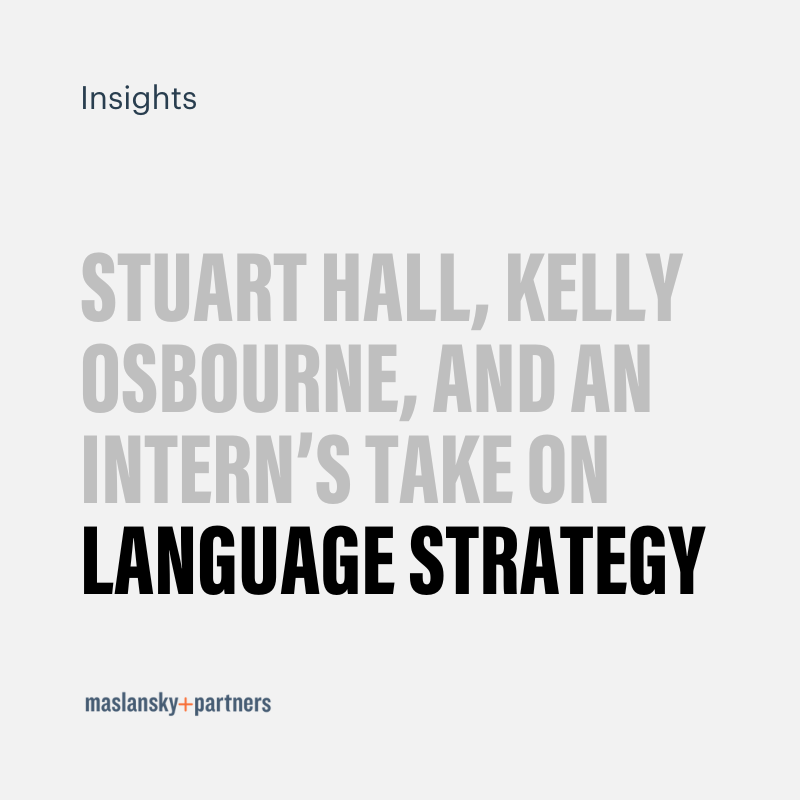

5 Language Tactics to Keep in Mind When You’re Interviewing: Q&A with an HR Leader

Note from Nile:
I’m not a language strategist—that’s the domain of my brilliant colleagues here. I come at this from the HR side of the table, with years of interviewing experience and a real passion for helping people show up as their best selves. What I’ve seen is that while language matters, communication is never one-size-fits-all. Great interviews happen when both the interviewer and the candidate feel like they’re having a real, human conversation. And for some people—especially those who communicate differently, like many neurodivergent folks—we as interviewers have a responsibility to create space for that. So, here’s my take on how candidates can use language thoughtfully and authentically in interviews.
How much does language really matter in an interview?
A lot—but not in the way people sometimes think. I’m not looking for perfection. I’m looking for clarity, confidence, and a sense that you know what this role requires. The words you use help me see how you think, how you solve problems, and whether you’ve prepared.
I’ve seen candidates completely nail a role on paper and then spend 30 minutes using vague, corporate-y language that tells me nothing about what they actually did and/or accomplished. I’ve also had people whose resume didn’t check all the boxes on the job description but whom, in an interview, told a story so specific and honest, I found myself rooting for them by minute five. Some people make it hard to root for them. For me, it’s those who have not prepared by doing the basic bit of research to fully understand the company or role. Misquoting our m+p tagline (as seen above) is far more common than you would ever guess. And it’s a difficult thing for someone to come back from, in my mind!

What are the most common communication pitfalls—and how can people avoid them?
Let’s be real: Nerves are normal. Nervousness can show up in a few ways. The most common? Rambling off topic. If the interviewer asks an open-ended question about past work experience and you end up telling a story about preschool, you have probably veered too far from relevant topics.
What can you do? Name it, pause, and recover.
“Sorry—I realize I’m rambling. I’m excited about this opportunity. Let me take a breath and try that again.”
Another watchout is the hyper-rehearsed response—the kind that sounds like it was generated by AI or a LinkedIn caption machine. I’ve heard, “I’m a dynamic thought leader who synergizes operational efficiency with a growth mindset.” Please don’t do that. I don’t know what it means, and I don’t think you do either.
Also: prep matters. I once had a candidate tell me how excited they were to join “Maslansky Law” and completely misquote the company tagline—which, to be clear, is very simple. We’re a Language Strategy agency. If your words show that you haven’t even Googled the company, it’s a tough start.
How can someone sound confident and clear without sounding robotic?
First, give yourself some tools. If you know you get nervous, practice common questions and telling your story ahead of time. That’s not to memorize the answer, but to make sure you’ve got language that feels natural to you. If you’re someone who struggles with verbal processing, it’s okay to jot down notes or even ask for a moment before answering. Did you use AI to help you learn more about the company, the role, and how your skills align? That’s a fantastic way to leverage a powerful tool. However, if you simply repeat the language AI provides without adding your own voice and personality, it will come across as less genuine and less impressive. So go a step further. Translate what you discovered through your research into your own words and perspective, so your responses truly reflect who you are.
Remember, your goal is clarity, not perfection. Lose your train of thought? It happens. Regroup and give a great answer.
Should candidates tailor their language to the company?
Yes—but don’t try to become someone else. Think of it less like “fitting in” and more like “showing you get it.” If the company talks a lot about collaboration, emphasize times when you brought people together. If they’re known for being scrappy and fast-moving, tell me a story about how you figured something out with zero budget and no roadmap.
It’s not about mirroring jargon—it’s about showing alignment. And doing your homework.
What are some tactics you’ve seen that really land in interviews?
Here’s what stands out:
Language that reflects ownership
Clarity about impact
Well-placed humor or personality
Honest self-assessment
How do the “4 Ps” of communication show up in an interview setting?
Let’s break it down:
Positive: Bring good energy; it is contagious. Do whatever gets you there: power stance, hype song, a funny podcast. You don’t have to fake cheerfulness but try to show up in a mindset that says, “I’m excited to be here.” And avoid speaking negatively about past employers—it usually reflects more on you than on them.
Plausible: Be real. If you were an intern, don’t say you “spearheaded strategy.” You can say, “I supported the strategy development process by doing X.” That’s credible and impressive. Sharing the areas where you need support is also important. Remember – you need to use the interview to assess if this role and organization is right for you.
Plainspoken: Please speak like yourself because that is how you will be most confident and comfortable.
Personal: Let your personality in and create real connection.

If you could give one piece of advice on language in interviews, what would it be?
Use your words to tell a clear story: “I know what this job is, and here’s why I can do it.” That’s the whole game.
And say it in a way that sounds like the most confident version of you. The best interviews feel like conversations between two people trying to figure out whether this is the right fit—for both of them. Avoid language that makes you feel like you are performing or answering questions on a trial stand.
And if you’re someone who communicates differently— that’s okay. Interviewers should hold space for different communication styles, especially for incredibly smart people who just communicate differently.
Note from m+p:
We’re always looking for talented people with unique perspectives and a passion for communication. Interested in learning more about our firm and opportunities to work here? Check out our career resource center.
Nile Hull is Senior Vice President, Talent, for maslansky + partners. With extensive experience in compensation strategy, talent management, and organizational change, she is passionate about aligning people strategy with business goals to help companies grow and build inclusive cultures. Over the years, she’s had the opportunity to work closely with CEOs and senior leaders, designing HR programs that support growth and improve how employees are engaged, retained, and supported. Nile is passionate about ensuring that everyone, regardless of background, has access to the opportunities, resources, and support they need to succeed. She focuses on open communication and inclusive leadership to create cultures where talent can grow and thrive.





